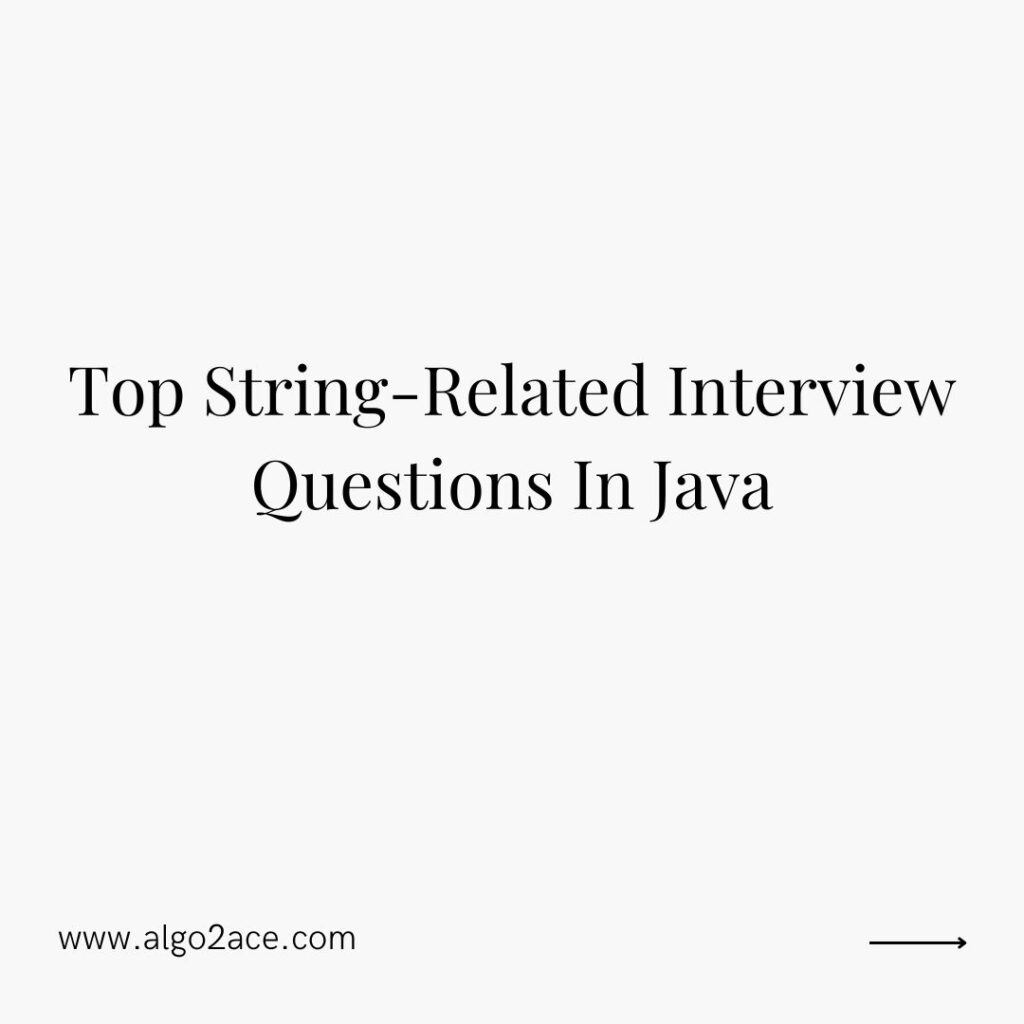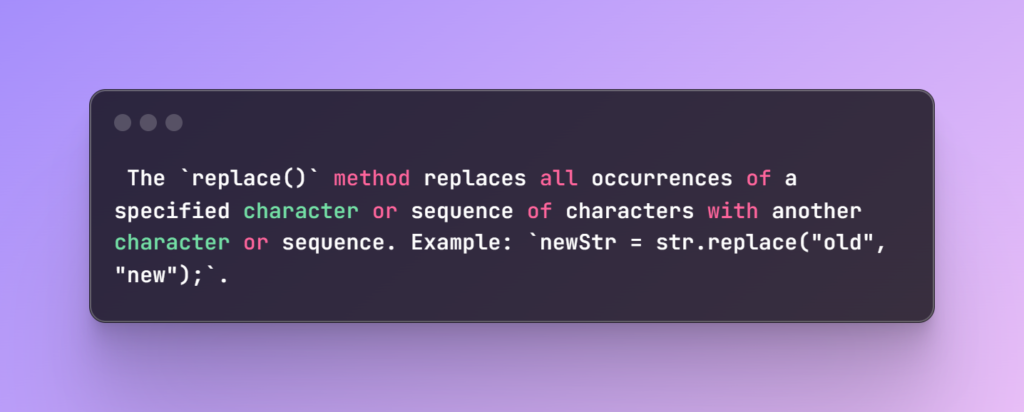Introduction:
Top String Related Interview Questions In Java
Welcome to our new blog Top String Related Interview Questions In Java. here are the top 10 questions on String asked in the interview.
In the intricate tapestry of Java programming, the manipulation and handling of strings stand as a fundamental skill set for developers. As Java applications often revolve around the effective management of textual data, a deep understanding of string-related concepts becomes pivotal. The following set of interview questions is meticulously curated to unravel the expertise of Java developers in navigating the nuances of string manipulation.
From the core methods within the `String` class to the dynamic capabilities of `StringBuffer` and `StringBuilder`, these questions explore various facets of string handling. The interviewees are challenged to elucidate their understanding of immutability, synchronization, and the diverse techniques available for string comparison, tokenization, and manipulation.
These questions not only probe the candidate’s knowledge of Java’s built-in string functions but also assess their problem-solving skills, critical thinking, and familiarity with efficient coding practices. As we delve into the intricacies of string-related operations, the aim is to uncover the depth of expertise required for developers to master the art of string manipulation in Java. Let’s embark on this journey through the realm of strings, where each question serves as a gateway to a deeper understanding of Java’s string-handling capabilities.
Top String Related Interview Questions In Java

1. What is the purpose of the `charAt()` method in the `String` class?
The `charAt()` method returns the character at a specified index in a string. It is zero-based, and an example usage would be `char firstChar = str.charAt(0);`.
2. How would you compare two strings irrespective of their case in Java?
perform a case-insensitive comparison, you can use the `equalsIgnoreCase()` method. For example, `str1.equalsIgnoreCase(str2)`.
3. What is the difference between `StringBuffer` and `StringBuilder`?
Both `StringBuffer` and `StringBuilder` are mutable, but `StringBuffer` is thread-safe due to synchronized methods, while `StringBuilder` is not thread-safe but offers better performance.
4. Explain the concept of `StringTokenizer` in Java.
`StringTokenizer` is used for tokenizing or breaking a string into smaller parts (tokens). It’s different from `split()` as it doesn’t use regular expressions and provides more control over the tokenization process.
5. How can you check if a string contains only numeric characters?
You can use the `matches()` method with a regular expression. For example, `str.matches(“\\d+”)` checks if the string contains only numeric characters.
6. What is the significance of the `intern()` method in Java strings?
The `intern()` method returns a canonical representation of a string, ensuring that identical strings share a common reference. This can be useful for optimizing memory usage.
7. How would you remove white spaces from the beginning and end of a string in Java?
Use the `trim()` method, e.g., `trimmedString = str.trim()`.
8.Discuss the role of the `format()` method in the `String` class.
The `format()` method is used for formatting strings using placeholders. It’s similar to `printf` in C. Example: `String formatted = String.format(“Hello, %s!”, name);`.
9. What are regular expressions, and how can they be used for string manipulation in Java?
Regular expressions (regex) are patterns that match character combinations in strings. In Java, they are used with classes like `Pattern` and `Matcher` for powerful string manipulation tasks.
10.Explain the purpose of the `replace()` method in the `String` class.

Reference :
Read more Blog:
Interview Questions On String In Java
String Based Interview Questions In Java
Conclusion:
In conclusion, our blog Top String Related Interview Questions In Java into the intricacies of strings in programming has been both enlightening and empowering. From unraveling the fundamental concepts of string manipulation to delving into the nuances of various programming languages, this journey has equipped us with a deeper understanding of how strings serve as an integral component in software development.
Through the lens of our Top String Related Interview Questions In Java interview blog, we’ve addressed key aspects such as string manipulation techniques, common challenges faced by developers, and the significance of string-related questions in technical interviews. The blog has sought to provide valuable insights and guidance for both aspiring and seasoned developers, offering a resourceful platform for enhancing one’s proficiency in working with strings.
As we navigate the dynamic landscape of programming languages, it becomes evident that strings, with their versatility and ubiquity, play a pivotal role in shaping the functionality and user experience of applications. The knowledge gained from this exploration serves as a foundation for building robust, efficient, and innovative software solutions.
In the ever-evolving world of technology, where strings are not just a sequence of characters but a gateway to a multitude of possibilities, we conclude our blog Top String Related Interview Questions In Java with the anticipation that it serves as a valuable resource for developers seeking to master the art of string manipulation and excel in their technical interviews. Here’s to unraveling more layers of programming intricacies and fostering a community of empowered and knowledgeable developers. Happy coding!

Pingback: Top Data Structure Interview Questions - Algo2Ace.com
I do not even know how I ended up here but I thought this post was great I do not know who you are but certainly youre going to a famous blogger if you are not already Cheers
Its like you read my mind You appear to know so much about this like you wrote the book in it or something I think that you can do with a few pics to drive the message home a little bit but other than that this is fantastic blog A great read Ill certainly be back